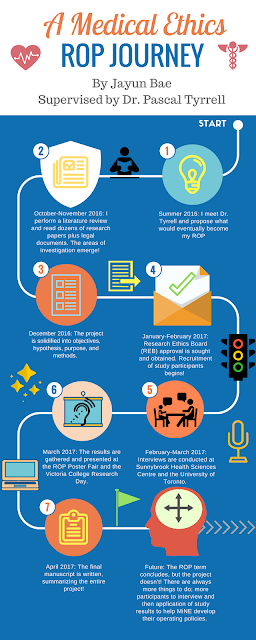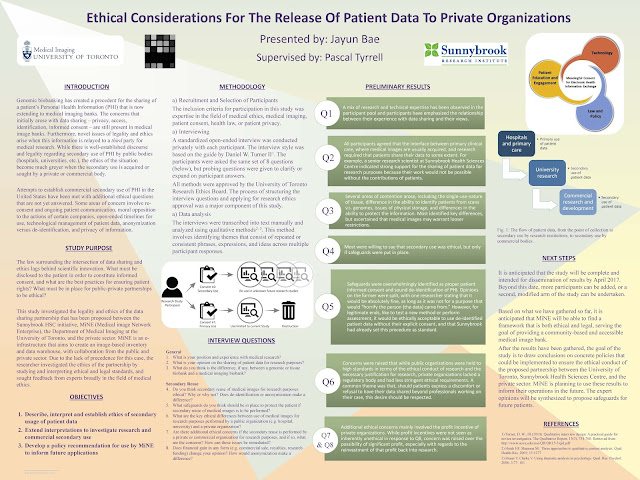 |
| Jayun Bae – ROP299Y 2016-17 |
My name is Jayun Bae and I am completing my second year in the Neuroscience and Bioethics majors at the University of Toronto, St. George. I was a 2016-2017 Research Opportunity Program (ROP) student in Dr. Pascal Tyrrell’s lab, working on a study that investigated the ethics of sharing patient data with private organizations (see my timeline above). I am a member of the Hart House Debating Club and an events associate for the Life Science Student Network.
My ROP project was necessitated by the partnership proposed by the Medical image Networking Enterprise (MiNE) that would establish a data-sharing relationship between public and private sector organizations. The ethical concerns with the partnership involved patient consent, privacy, and financial gain – but there were also issues that I
uncovered throughout the project. It quickly became clear that the answers could not be found through an examination of precedence or legal documents, because many of the research actions that would take place (specifically involving private organizations) fell in the grey area between what was legal and what was ethical. For example, the Personal Information Protection and Electronic Documents Act (PIPEDA) and Personal Health Information Protection Act (PHIPA) are two guidelines for organizations to follow when handling patient data – but neither are able to clearly and positively dictate how this partnership should operate.
Therefore, I developed a study that would seek expert opinions through the administration of a survey. I conducted interviews at Sunnybrook Health Sciences Centre and the University of Toronto and performed qualitative data analysis. My ROP project was presented at the ROP Poster Fair and the Victoria College Research Day events. The ROP was an extremely valuable experience in gaining research skills, and I’m grateful to
Dr. Tyrrell for the guidance and mentorship. The project is not yet completed, so I am looking forward to continuing the study beyond the scope of the ROP. Please have a look at my poster from the 2017 ROP Research Day below:


